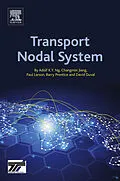Transport Nodal System provides a comprehensive introduction to the development of transport nodes and nodal systems, focusing on economic, operational, management, planning, policy, regulation and sustainability perspectives. Through a deep analysis on different types of transport nodes from diverse perspectives, this book shows the major issues and challenges that transport node planners, managers, and policymakers face, and how to address them. The book provides a clear framework for identifying the common attributes across all nodes that contribute to the efficient operations, planning, and management of transport facilities. Transport nodes such as seaports, inland terminals, airports, highways, and railroads are hubs in a multimodal transportation network that facilitate the smooth operation of passengers and freight. The book uniquely uses the transport node itself rather than a specific type of structure for a specific type of transport mode as the primary focus of analysis. While stressing the importance of transport nodes in developing efficient logistics and supply chains, the book also demonstrates that transport nodes are geographically embedded within a particular location, and that operations are inevitably affected by local factors, such as culture, the economy, the political and regulatory environment and other institutions. - Provides a unified look at multimodal transportation nodes to gain a better understanding of total system performance - Includes numerous case studies from developed and emerging economies - Uses an interdisciplinary approach where policy, regulations, economics, strategic management, operations, sustainability and technological innovation are considered together - Features chapters by scholars who specialize in different transport modes (land, sea and air) - Up-to-date outcomes utilizing author's original research provide a systematic investigation of the nodal system in both theory and practice
Autorentext
Adolf K.Y. Ng is a professor of Transport and Supply Chain Management at the University of Manitoba in Canada. His main research areas include transport geography, climate adaptation and resilience, transport infrastructure planning and management, global supply chains, and the Arctic. He has authored or coauthored over 200 publications in the field and is an editor of European Journal of International Management, Maritime Policy & Management, and Asian Journal of Shipping and Logistics. He is a founding member of the International Forum on Climate Change Adaptation Planning for Port, Transportation Infrastructure, and the Arctic (CCAPPTIA) (ccapptia.com).
Klappentext
Transport Nodal System provides a comprehensive introduction to the development of transport nodes and nodal systems, focusing on economic, operational, management, planning, policy, regulation and sustainability perspectives. Through a deep analysis on different types of transport nodes from diverse perspectives, this book shows the major issues and challenges that transport node planners, managers, and policymakers face, and how to address them. The book provides a clear framework for identifying the common attributes across all nodes that contribute to the efficient operations, planning, and management of transport facilities.
Transport nodes such as seaports, inland terminals, airports, highways, and railroads are hubs in a multimodal transportation network that facilitate the smooth operation of passengers and freight. The book uniquely uses the transport node itself rather than a specific type of structure for a specific type of transport mode as the primary focus of analysis. While stressing the importance of transport nodes in developing efficient logistics and supply chains, the book also demonstrates that transport nodes are geographically embedded within a particular location, and that operations are inevitably affected by local factors, such as culture, the economy, the political and regulatory environment and other institutions.
- Provides a unified look at multimodal transportation nodes to gain a better understanding of total system performance
- Includes numerous case studies from developed and emerging economies
- Uses an interdisciplinary approach where policy, regulations, economics, strategic management, operations, sustainability and technological innovation are considered together
- Features chapters by scholars who specialize in different transport modes (land, sea and air)
- Up-to-date outcomes utilizing author's original research provide a systematic investigation of the nodal system in both theory and practice
Inhalt
1. Introduction 2. Transport Networks and Impacts on Transport Nodes 3. Measuring Transport Nodes and Nodal Systems 4. Policy and Regulations of Transport Nodes and Nodal Systems 5. Congestion in Transport Nodes and Nodal Systems 6. Planning Transport Node and Nodal System Projects 7. Sustainability and Resilience of Transport Nodes and the Nodal System 8. Transport Nodes and Supply Chain Sustainability 9. Innovations in Transport Nodes and Nodal Systems: Airship Transportation Systems and Aerodome Requirements 10. Climate Change and its Impact: Opening up the Arctic Seas for Maritime Transport
